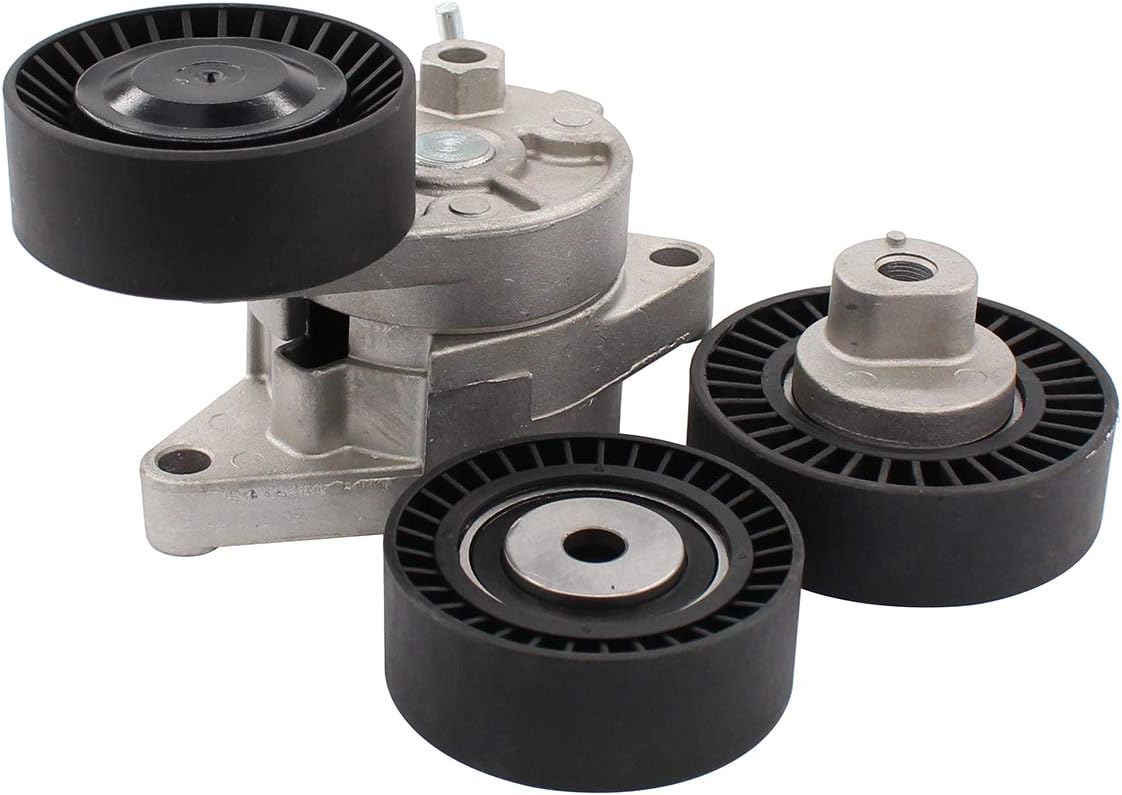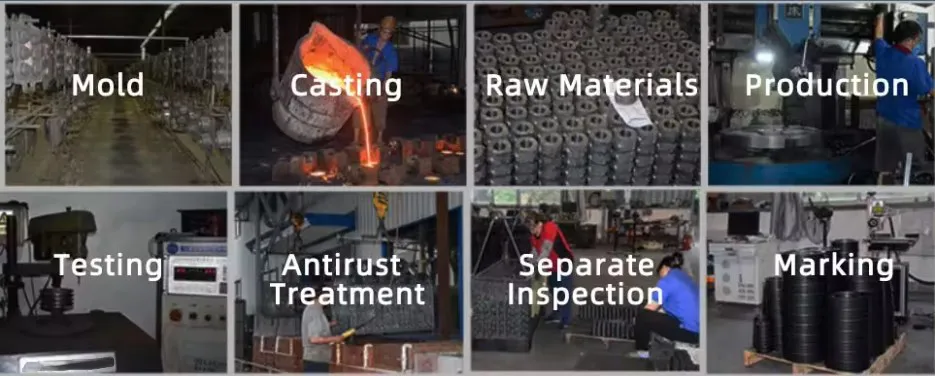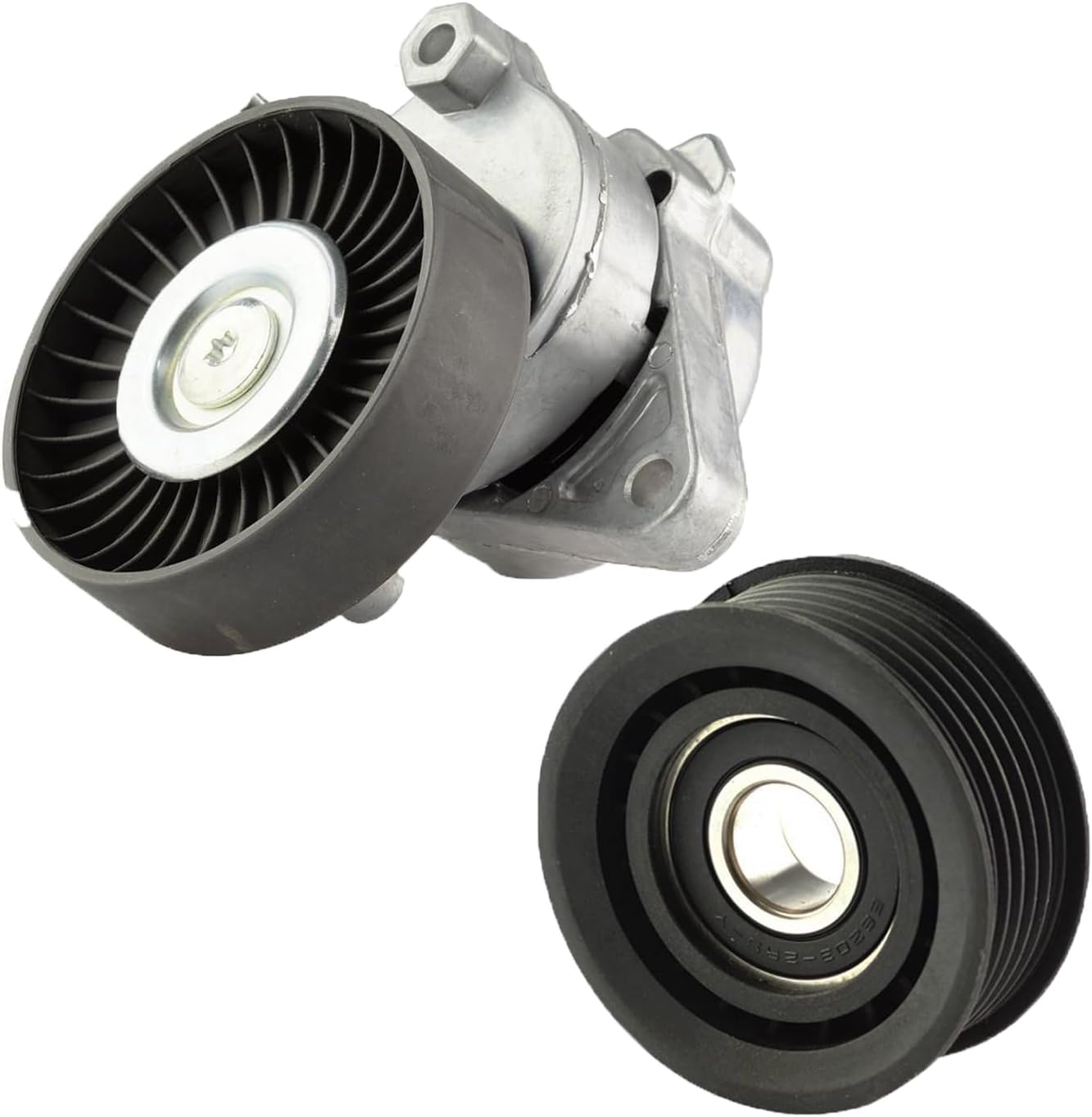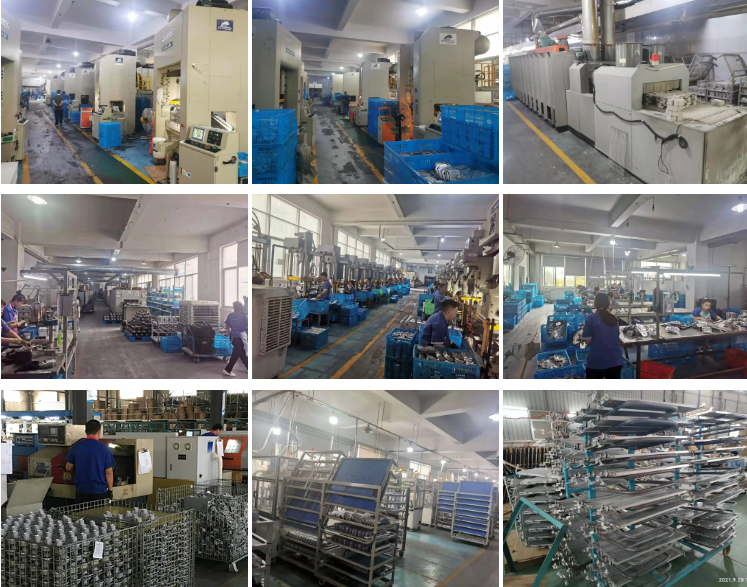What does a idler pulley do?
-
Supporting Belt Tension
Idler pulleys help support the tension of the drive belt, ensuring it stays in place and functions properly.
-
Reducing Wear
By providing a smooth surface for the belt to run on, idler pulleys help reduce wear and tear on the belt.
-
Improving Efficiency
Idler pulleys help improve the efficiency of the belt system by ensuring proper tension and alignment.
-
Preventing Slipping
They help prevent the belt from slipping off or becoming misaligned during operation.
-
Supporting Other Components
Idler pulleys also support other components in the belt system, helping them function effectively.
What happens when an idler pulley goes bad?
-
Increased Noise
When an idler pulley goes bad, it can cause increased noise from the belt system.
-
Decreased Performance
Bad idler pulleys can lead to decreased performance of the belt system, affecting overall vehicle operation.
-
Belt Damage
A faulty idler pulley can cause damage to the drive belt, leading to potential breakdowns.
-
Overheating
If an idler pulley fails, it can cause increased friction and overheating in the belt system.
-
Complete Belt Failure
In severe cases, a bad idler pulley can result in complete belt failure, leading to costly repairs.
Does idler pulley need to be replaced?
-
Regular Inspection
Regular inspection of the idler pulley is recommended to determine if replacement is necessary.
-
Signs of Wear
If there are signs of wear such as noise, vibration, or belt misalignment, the idler pulley should be replaced.
-
Manufacturer Recommendations
Follow manufacturer recommendations for replacement intervals to ensure optimal performance.
-
Preventive Maintenance
Replacing the idler pulley as part of regular preventive maintenance can help avoid costly repairs.
-
Professional Inspection
If in doubt, have a professional mechanic inspect the idler pulley and recommend replacement if necessary.
Advantages of Idler Pulleys
-
Improved Belt System Performance
Idler pulleys help improve the performance of the belt system by providing proper tension and support.
-
Extended Belt Lifespan
By reducing wear and tear on the belt, idler pulleys can extend the lifespan of the belt.
-
Enhanced Efficiency
Idler pulleys contribute to the overall efficiency of the belt system, ensuring smooth operation.
-
Reduced Maintenance Costs
Properly functioning idler pulleys can help reduce maintenance costs by preventing belt system failures.
-
Improved Vehicle Safety
By maintaining proper belt tension and alignment, idler pulleys contribute to vehicle safety.
Process of Compound Pulley
Mold
The mold for the compound pulley is created to ensure accurate and consistent production.
Casting
The raw materials are melted and poured into the mold to create the pulley shape.
Raw Materials
High-quality materials are used to ensure durability and performance of the compound pulley.
Production
The compound pulley is produced using advanced manufacturing techniques for precision.
Testing
Each compound pulley undergoes rigorous testing to ensure quality and performance standards are met.
Antirust Treatment
The pulley is treated with antirust coatings to protect it from corrosion and extend its lifespan.
Seperate Inspection
After production, the pulleys undergo separate inspections to ensure quality control.
Marking
Each pulley is marked with identifying information for traceability and quality assurance.
What is the function of the tensioner and idler pulley?
-
Maintaining Belt Tension
The tensioner and idler pulley work together to maintain proper tension in the belt system.
-
Preventing Belt Slippage
They help prevent the belt from slipping off or becoming misaligned during operation.
-
Supporting Belt Alignment
The tensioner and idler pulley support proper belt alignment, ensuring smooth operation.
-
Reducing Noise
By maintaining tension and alignment, they contribute to reducing noise in the belt system.
-
Improving Efficiency
Together, they improve the overall efficiency of the belt system, enhancing performance.
-
Enhancing Safety
Proper tension and alignment provided by the tensioner and idler pulley enhance vehicle safety.
How to stop a idler pulley from squeaking
-
Clean the Pulley
Remove any dirt or debris that may be causing the squeaking noise.
-
Lubricate the Pulley
Apply a suitable lubricant to reduce friction and eliminate the squeaking.
-
Check Alignment
Ensure the pulley is properly aligned to prevent unnecessary noise.
-
Inspect for Damage
Check for any damage or wear on the pulley that may be causing the squeaking.
-
Replace if Necessary
If cleaning and lubrication do not stop the squeaking, consider replacing the idler pulley.
About HZPT
HZPT, established in 2006, is a leading manufacturer of precision transmission components based in Hangzhou. We specialize in producing various components and can customize products according to your needs. Before establishing an overseas sales team, we were already producing 3D printer parts, anti-theft screws and nuts, camera mounts, and more. We also offer assembly production services to save time and costs. With a focus on quality, competitive pricing, and excellent service, we have earned a reputation among major clients in Europe and America. Choose HZPT for the best products and service!



